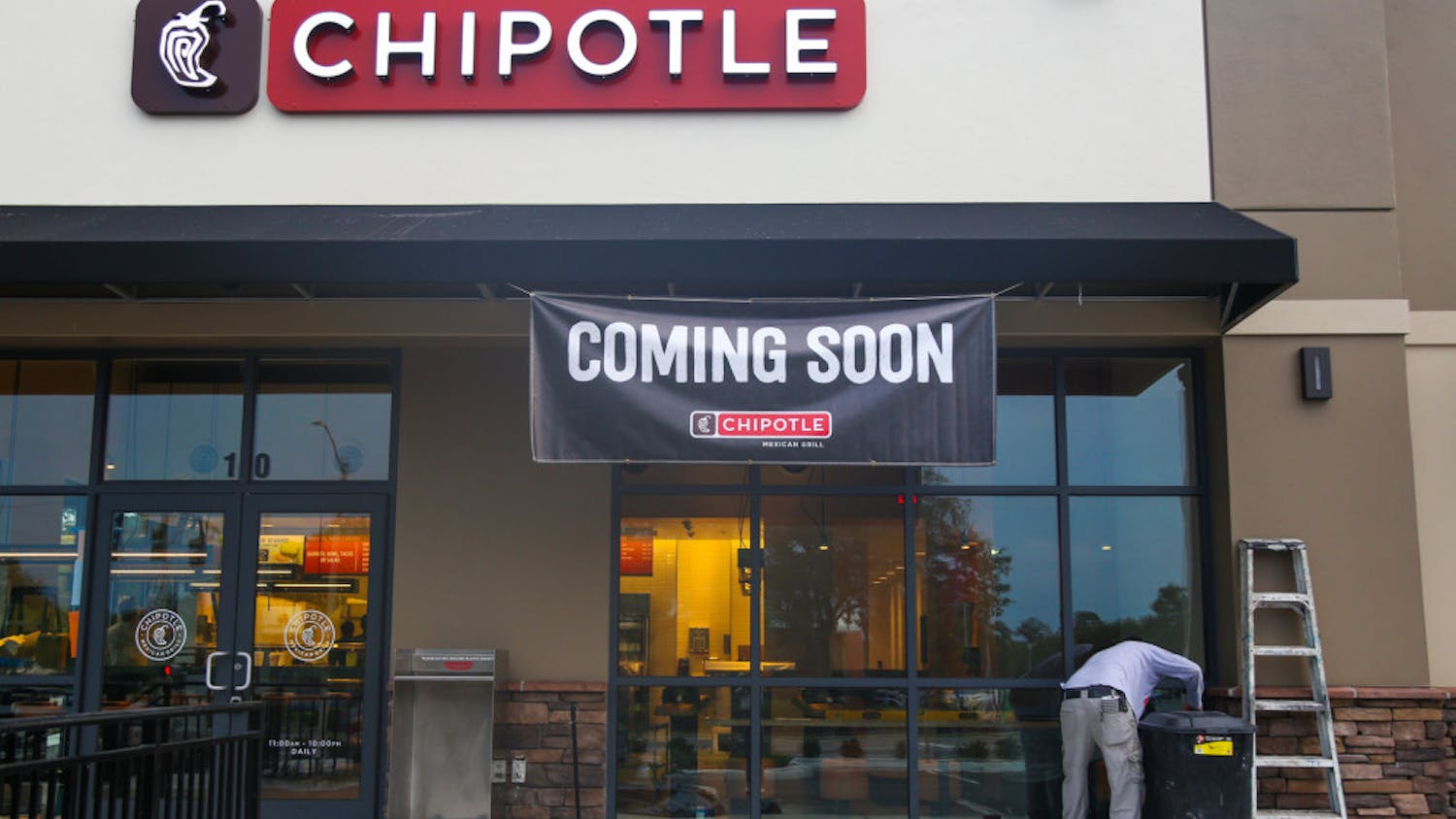Ana Ward still eats at Chipotle despite a recent outbreak of E. coli.
As of press time, there were 53 cases of E. coli among nine states — not including Florida — from people who had eaten from the Mexican restaurant since November, according to the Centers for Disease Control and Prevention.
On Friday, Susie Ong filed a lawsuit against the company on behalf of all the investors who were affected by the bacteria, according to U.S. District Court records.
The lawsuit claims Chipotle misled investigators about its quality control, leading to plummeting stock prices. The stock fell to about $426 on Jan. 6 — a drop of about 5 percent, according to the records.
Regardless of the E. coli outbreak, the Chipotle near UF on University Avenue is still thriving.
“I will still take the risk and eat there,” said Ward, a UF plant science junior.
The 20-year-old said she is not worried about getting sick.
“I feel like the chance is really small, and you would take that risk with any restaurant,” she said.
Keith Schneider, a UF food science and human nutrition professor, said it would be rare to contract E. coli from the Chipotle near campus.
“The fact that we haven’t seen any foodborne illnesses in Florida, let alone the entire Southeast, probably would lead me to believe that there is no greater risk eating at a Chipotle in the Southeast than there is in any other fast food type restaurant,” Schneider said.
It is not unusual to find E. coli in low numbers when food is being produced organically, he said.
“The widespread nature of (Chipotle E. coli outbreaks), leads you to believe that it is some environmental source for the contamination,” Schneider said.
The contamination of Chipotle food is likely a result of improperly composted fertilizer or wild animals tracking the bacteria through the supplier’s fields, he said.
There are hundreds of different strains of E. coli, some more severe than others, Schneider said. The most common strain heard about in the news is E. coli O157:H7.
Chipotle released a statement on its website addressing the E. coli breakout.
“The safety of our customers and the integrity of our food supply have always been our highest priorities,” according to the statement. “We offer our deepest sympathies to those who have been affected by this situation, and will continue to cooperate with health authorities as they look to conclude their investigation.”
David Greenberg, the owner of David Greenberg Communications, a public relations office, said he believes Chipotle’s initial step in keeping their brand intact is to admit they made a mistake.
“When you screw up, always explain very clearly what processes are being put into place to move forward,” Greenberg said.
Chipotle’s main target audience is young adults, and their focus should be on retaining this group of individuals, he said.
“One of the things they could do for their loyal, regular customers is offer an incentive,” Greenberg said. “Given their target audience, if they offer discounts, they will keep them.”





